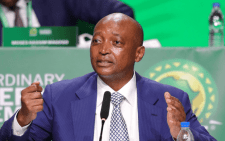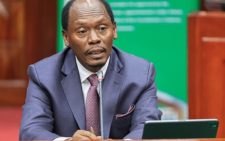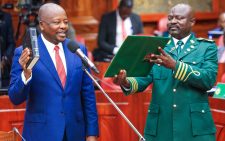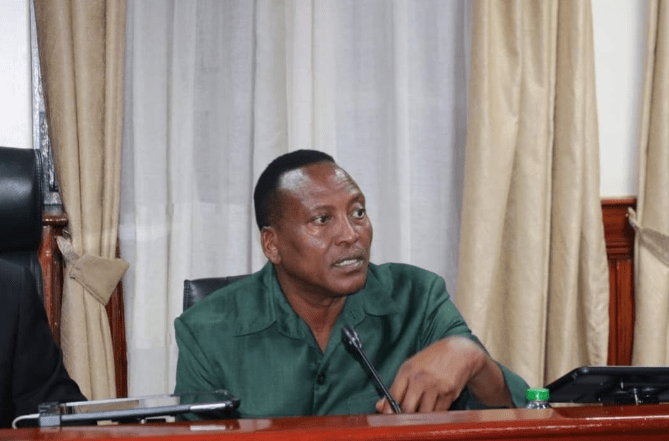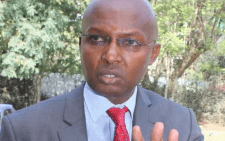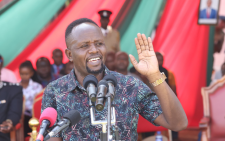NADCO member Eugene Wamalwa rejects committee’s final report

Former Defence Cabinet Secretary Eugene Wamalwa has expressed his dissent to the National Dialogue Committee’s report unveiled on Saturday, November 25, 2023.
The member of the committee, while addressing a congregation in Tingolo Catholic Church in Busia on Sunday, November 26, said NADCO did not do justice to the issue of cost of living that formed the basis of the talks.
“I didn’t and will not append my signature to the NADCO report and have not and will not accept any sitting allowance for the same because I believe we did not do justice to the single most important issue to Kenyans; the cost of living,” he said.
In the recommendations unveiled yesterday, the committee said it failed to reach a consensus on the reduction of Value Added Tax (VAT) on fuel from 16 per cent to 8 per cent, and scrapping of the housing levy.
However, the team co-chaired by Kalonzo Musyoka of the Azimio la Umoja – One Kenya coalition and his Kenya Kwanza counterpart Kimani Ichung’wah recommended four measures to address the cost of living.
The committee proposed that all arms of government reduce their travel budget by 50 per cent and that the Salaries and Remuneration Commission (SRC) review and reduce Daily Subsistence Allowances for State and Public Officers by 30 per cent.
The committee also recommended that the Ministry of Energy and Petroleum in liaison with the national Treasury reduce the road maintenance levy and the anti-adulteration levy by Ksh5 and Ksh3 per litre respectively.
Similarly, the committee recommended that the National Government finalize the transfer of all devolved functions and provide for the concomitant resources to the county governments.
Further, NADCO recommended that the parliament amends the Constitution to provide for the equitable share to the County Governments not to be less than 20 per cent of all revenue collected by the National Government from the current 15 per cent.
Earlier, Azimio co-principal Martha Karua also distanced herself from the agreement reached between members of the committee, five from each of the two sides.
The Narc Kenya leader, in a post on X (formally Twitter), said any deal that does not immediately impact the cost of living, electoral justice and multi-party democracy is a fraud and must be rejected.
“Any purported agreement that does not immediately impact on cost of living, electoral justice and respect for multiparty democracy is a fraud on the people and must be rejected,” Karua wrote.
Consensus
In its report, the committee said it had reached a consensus on the issue of audit of the 2022 presidential election results. The committee recommended an evaluation of last year’s election with a view to improving the country’s electoral processes.
“Evaluation of elections are important in ensuring that voting systems operate accurately, that election officials comply with laws, regulations and internal policies, identifying weaknesses and set benchmarks for future performance. In addition, it helps build confidence in the election administration process and credibility of the results and the electoral management body,” the committee said in its report.
NADCO recommended formation of a parliamentary panel to evaluate the 2022 electoral process.
“Within twenty-one days of the adoption of this report by Parliament, the leadership of the majority and minority coalitions shall appoint a panel to evaluate the 2022 electoral process,” the committee said, adding that the majority and minority parties or coalition shall each nominate three experts to lead the process.
NADCO recommended the reconstitution of the Independent Electoral and Boundaries Commission selection panel to be increased to nine members from the seven which was proposed by President William Ruto.
Similarly, the bipartisan talks team recommended that legal reforms that have been passed 18 months before the general elections become effective in the next election.
Further, the committee recommended the increase of timelines within which the Supreme Court will hear and determine a petition challenging presidential elections from 14 to 21 days.
Similarly, the committee recommended the establishment of State Offices such as the office of the leader of the opposition and the office of the Prime Cabinet Secretary.
NADCO stated that the prime minister will be nominated and appointed by the president upon approval by the National Assembly.



